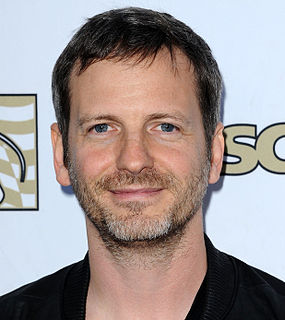A Quote by Dolph Ziggler
I'm someone who loses 80 to 90 percent of the time. Even when I lost, I put my body on the line and I told the best story. If I stood out, if my attitude towards fighting was different, I found a way to stay around and keep revamping myself and my character.
Related Quotes
We scientists can argue forever about important topics like slightly different flavors of vanilla ice cream. Consider the silliness of this debate: one group of scientists found a 90% decline of big fish and criticized fishery management. Some other scientists found an 80% decline and started a big argument with the 90% people. Who cares if it's 80% or 90%? The real question is whether it's OK to let fishermen take most of the big fish out of our oceans.
Economists often talk about the 80/20 Principle, which is the idea that in any situation roughly 80 percent of the “work” will be done by 20 percent of the participants. In most societies, 20 percent of criminals commit 80 percent of crimes. Twenty percent of motorists cause 80 percent of all accidents. Twenty percent of beer drinkers drink 80 percent of all beer. When it comes to epidemics, though, this disproportionality becomes even more extreme: a tiny percentage of people do the majority of the work.
Even in areas like the most depressed region of India in terms of female education, namely Rajasthan, which has [one of] the lowest female literacy [rates] in India. Even there, 80 to 90 percent of the parents would like their girls to go to school. And indeed, about 80 percent would like them to be made compulsory.
I've always thought of myself as an 80 percenter. I like to throw myself passionately into a sport or activity until I reach about an 80 percent proficiency level. To go beyond that requires an obsession that doesn't appeal to me. Once I reach 80 percent level I like to go off and do something totally different; that probably explains the diversity of the Patagonia product like - and why our versatile, multifaceted clothes are the most successful.
I read something in the paper that really confused me the other day. It said that 80 percent of the people in New York are minorities. Shouldn't you not call them minorities when they get to be 80 percent of the population? That's a very white attitude, don't you think? I mean, you could take a white guy to Africa and he'd be like 'Look at all the minorities around here! I'm the only majority.'
Using any reasonable definition of a scientist, we can say that 80 to 90 percent of all the scientists that have ever lived are alive now. Alternatively, any young scientist, starting now and looking back at the end of his career upon a normal life span, will find that 80 to 90 percent of all scientific work achieved by the end of the period will have taken place before his very eyes, and that only 10 to 20 percent will antedate his experience.


































